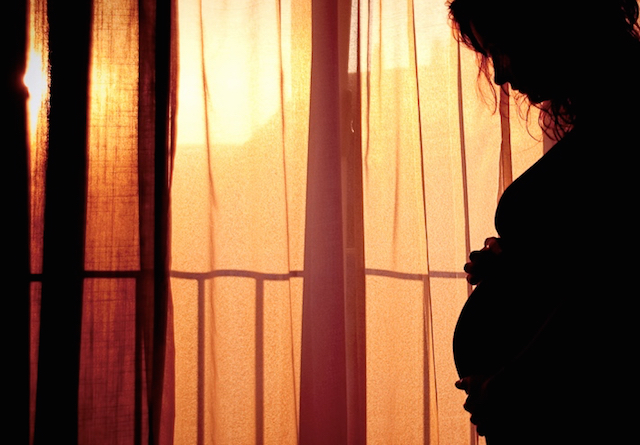Charities have warned that pregnant women with extreme morning sickness are being refused help by NHS staff, leading some to have abortions.
Pregnancy Sickness Support (PSS) and researchers at Plymouth University spoke to 394 women for research published in the midwifery journal Midirs today. They were looking at the treatment given to women with hyperemesis gravidarum (HG), a severe form of morning sickness where women struggle to keep down food and drink. Some report being sick up to 50 times a day, which in the worst cases can lead to dehydration and organ failure if untreated.
The research found that only 34 per cent of the women felt they had been given accurate information to make informed decisions about medications and treatment.
“Just deal with it”
Some women reported being told that the extreme symptoms were “just part of being pregnant” and to just “deal with it”. One woman told researchers: “I was told to go home and deal with it like everyone else and that hospital wasn’t a ‘hotel’. “I asked to speak to the doctor about changing medication as the cyclizine wasn’t working for me and I couldn’t function enough to look after my other two children. She actually told me that she wasn’t there to ‘sort out my social life’ and that if I couldn’t look after my children she would refer me to social services. I was dumbstruck and horrified.”
One woman said that she had been told, incorrectly, that when the drug which is generally most effective, ondansetron, did not work nothing could be done. “[I] terminated my baby because of this and spiralled into depression,” she said.
Incorrect information
The report also found that other women were being given incorrect information about the side effects medication could have on the baby. A nurse told one that the drug “would give me a deformed baby and I would regret it”.
Caitlin Dean, the chairperson of PSS and lead researcher told i news that some doctors are hesitant to provide drugs to treat HG because of the effects that thalidomide had on babies in the 1950s and 60s.
The researchers found 11 women in their study – nearly 3 per cent – had terminations because of the condition. Of these, five had not been prescribed ondansetron.
Ms Dean said the true figures may be closer to 10 per cent, because women who had undergone abortions were less likely to engage with researchers. The British Pregnancy Advisory Service said between 1,000 and 1,500 women each year will have an abortion because of the symptoms of HG.
Women are in despair – how is that choice?
SPUC researcher Fiorella Nash, who suffered from HG in all four of her pregnancies, and has studied the issue in depth, says the experiences of the women in the study were all too similar to what she endured herself. “I was told that ‘one gets on with it’, and even ‘it’s your choice to be pregnant!’ I was shocked by the level of ignorance displayed by doctors – it’s disgraceful that in the 21st century women with pregnancy complications that can lead to high levels of miscarriage, and as we see here, the sort of desperation that leads them to abort, are not being given the care they need.
Keep up with the latest pro-life news and information on Twitter. Follow @LifeNewsHQ
“When women end up having abortions because of HG, it’s because they’re in such a state of despair that they literally can’t see any other way out. What kind of choice is that? Women who are that sick are incredibly vulnerable, and it’s ludicrous that they are left with no support. What’s really tragic is that these are often very much wanted babies, and inadequate care drives women to do something they never usually would. These women don’t need abortion, they need to be taken seriously and have their very serious medical condition treated.
It’s not about resources – it’s the value you place on pregnant women
“The study reports that doctors were reluctant to prescribe more expensive medication, something I myself experienced. Apart from the callousness of this consideration, it says something about priorities. Britain’s maternal health ranking consistently lower than several poorer countries, which shows it’s nothing to do with resources, it’s to do with the value you place on pregnant women.”
LifeNews Note: Courtesy of SPUC. The Society for the Protection of Unborn Children is a leading pro-life organziation in the United Kingdom.








